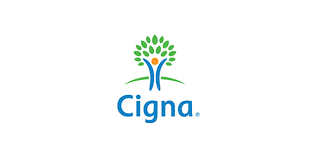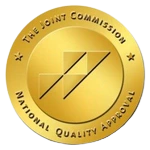Cigna Insurance Coverage for Drug and Alcohol Rehab
Dealing with addiction is a challenging journey, and understanding insurance coverage shouldn’t add to the stress.
Cigna, a national insurance provider with a vast network of care options, offers comprehensive coverage. It often includes services like detox, inpatient rehab, outpatient therapy, and mental health treatment.
However, we understand that navigating this coverage can be complex. It’s normal to have questions about your Cigna coverage.
Wondering what’s covered, how long you can stay in treatment, or what happens if your preferred rehab is out-of-network are all common and valid concerns.
This guide clearly explains what types of addiction treatment Cigna typically covers, how different plans (like HMO vs. PPO) affect your choices, how to verify your benefits, and what to do if you’re considering an out-of-network facility like Tulip Hill Recovery.
You’ll also find information on how Tulip Hill helps people from all walks of life—especially those seeking trauma-informed, personalized care—use their insurance to get the help they need.

Does Cigna Cover Drug and Alcohol Rehab?
Yes, Cigna health insurance plans generally include coverage for drug and alcohol rehab, often through their behavioral or mental health benefits. If treatment is deemed medically necessary, most Cigna policies will cover services to help individuals overcome substance use disorders (SUD).
Because of laws like the Affordable Care Act (ACA) and the Mental Health Parity and Addiction Equity Act, insurance companies are required to treat addiction and mental health care on equal footing with physical health services.
Substance use treatment is not optional coverage, it’s essential care, and Cigna policies reflect that.
While the exact details of what’s covered will depend on your specific plan and state, here are some common levels of care Cigna may cover:
- Medically Supervised Detox: 24/7 medical oversight and medication support for withdrawal.
- Inpatient or Residential Rehab: Structured programs with full-time care and therapy.
- Partial Hospitalization Programs (PHP): Day programs offering intensive treatment without overnight stay.
- Intensive Outpatient Programs (IOP): Flexible therapy for people transitioning from higher care levels or balancing work and home life.
- Ongoing Counseling and Aftercare: Continued support after initial treatment ends.
It’s important to verify your coverage ahead of time and confirm whether preauthorization is required.
Tulip Hill Recovery offers free insurance verification to help you get a clearer picture of what your Cigna plan will cover and what your next steps can be.
Detox and Rehab Programs Covered by Cigna
At Tulip Hill Recovery, we provide comprehensive, evidence-based treatment for a full spectrum of addiction and mental health disorders.
Whether someone is struggling with one substance or several, or dealing with the added challenges of trauma, depression, or anxiety, our experienced team provides personalized care that addresses the full picture.
At Tulip Hill Recovery, we’re here to help individuals and families heal, step by step.

Drug Detox
For substances like alcohol, opioids, or benzodiazepines, detox can be physically and emotionally tough, so having professional help is crucial. Detox is often the first step in the recovery process, and it involves 24/7 medical supervision of withdrawal symptoms in a safe environment.
With Cigna, medically supervised detox is often covered when clinically necessary.
This level of care involves 24/7 medical monitoring, comfort medications to ease withdrawal symptoms, and emotional support to stabilize you before beginning therapy.
Detox may last anywhere from a few days to over a week, depending on the substance and severity.

Inpatient/Residential Rehab
Inpatient treatment involves living at a center full-time while receiving structured care. This includes therapy, group counseling, medical support, and daily routines aimed at stabilizing the individual and preparing them for long-term recovery.
Residential care is often recommended for those with severe addiction, co-occurring issues, or a relapse history.
Clients live on-site at the rehab facility and participate in daily therapy sessions, recovery education, and wellness activities.
Cigna may cover all or part of this stay, especially if the person has a history of relapse or co-occurring mental health issues or lacks a supportive home environment.

Partial Hospitalization Program (PHP)
PHP is a step down from residential care but still offers a high level of support.
Clients attend structured therapy sessions for several hours a day, five to seven days a week, and then return home or to sober living in the evenings.
PHP is often covered by Cigna when residential care is no longer necessary but intensive support is still needed.
A Partial Hospitalization Program (PHP) is an intensive form of outpatient treatment that provides the clinical support of inpatient rehab without requiring a residential stay.
Designed for individuals who need a high level of care but are stable enough to live at home or in a sober living environment, PHP bridges the gap between inpatient treatment and traditional outpatient therapy.
At Tulip Hill Recovery, our PHP rehab in Murfreesboro typically runs 5 to 6 days per week and offers 30+ hours of therapy.

Intensive Outpatient Program (IOP)
IOP provides a flexible treatment option for those who need to balance work, school, or family responsibilities.
It usually involves 9–12 hours of therapy per week, including individual counseling, group therapy, and relapse prevention.
Many Cigna plans cover IOP as a step-down service or standalone option for people with less severe symptoms.
IOP provides the structure and accountability necessary for early recovery, while still giving you the flexibility to live at home or in a sober living environment, work, attend school, and rebuild your life outside of treatment.
Whether you’re stepping down from a PHP rehab program or starting outpatient care for the first time, our Murfreesboro IOP offers comprehensive support, personalized care, and a strong community to help you achieve lasting success.

Addiction Treatment Aftercare
This includes weekly counseling or support groups and may continue for months or years after formal treatment ends.
Cigna typically covers outpatient mental health services, especially when used for long-term relapse prevention or managing co-occurring conditions.
An aftercare rehab program is a follow-up plan that helps you stay on track after completing formal addiction treatment for a substance use disorder and any co-occurring disorders.
It’s not just a final step—it’s a continuation of care that helps you stay grounded and supported in early recovery.
With our addiction aftercare programs, paired with our proven treatment methods, you gain practical tools and ongoing check-ins that help you stay strong and avoid relapse.

Dual Diagnosis Treatment
As a leading dual diagnosis treatment center in Tennessee, we specialize in integrated care that treats the whole person, not just the symptoms.
Whether you’re dealing with depression and alcohol use, PTSD and benzodiazepine dependence, or another combination, we’re here to support you.
Our approach to dual diagnosis treatment is grounded in compassion, science, and personal experience.
We provide a safe space to uncover what’s really driving addiction, and we help our clients build the tools they need to recover from both.
Related Blog Resources
At Tulip Hill Recovery, we believe that education is a powerful tool in recovery. To help you better understand the effects of addiction and the path to healing, we’ve created several in-depth resources you can explore:

What Type of Addictions Treatment Does Cigna Insurance Cover?
Cigna insurance typically provides coverage for a wide range of substance use disorders.
The key factor in determining eligibility for coverage is medical necessity—not the specific substance involved. If a licensed provider determines that treatment is clinically needed for a substance use disorder, chances are Cigna will cover all or part of the care, depending on your plan.
Here are some of the most commonly covered addictions under Cigna’s behavioral health benefits:
Alcohol is one of the most commonly treated substances in rehab programs.
Coverage often includes detox, inpatient or outpatient care, and ongoing therapy.
Because alcohol withdrawal can be dangerous, medically supervised detox is usually considered necessary.
This includes substances like fentanyl, heroin, oxycodone, hydrocodone, and other prescription painkillers. Detox and medication-assisted treatment (MAT) like buprenorphine or Suboxone may also be covered.
Given the current opioid epidemic in Tennessee, many plans support multiple levels of care for opioid use disorder.
Benzodiazepine addiction can be particularly dangerous due to the risk of severe withdrawal symptoms.
Drugs like Xanax, Ativan, Klonopin, and Valium can lead to severe withdrawal symptoms. Medically supervised detox and long-term therapy are often approved under Cigna.
Substances like Adderall, Ritalin, methamphetamine, and cocaine are also covered, with therapy-based approaches often recommended for these types of addictions.
Many individuals use more than one substance, and Cigna policies recognize this. Treatment plans tailored to multiple substance dependencies are typically included in coverage.
In addition to addiction-specific treatment, Cigna also covers care for co-occurring mental health disorders—an approach known as dual diagnosis treatment.
Integrated care gives individuals the best shot at long-term recovery by addressing the mental health and substance use components at the same time.
Cigna Plan Types
Cigna Insurance offers several types of health plans, and each one plays a role in what kind of addiction treatment is covered—and where you can go for help.
HMO (Health Maintenance Organization)
These plans require you to stay within Cigna’s network of providers, and you’ll probably need a primary care referral to see a specialist or go to a rehab facility.
While HMOs often offer lower premiums and out-of-pocket costs, they can be restrictive regarding access to care outside the network, including many residential treatment centers.
PPO (Preferred Provider Organization)
You don’t need a referral to see a specialist, and you can seek care both in and out of network.
If you’re considering a rehab center like Tulip Hill Recovery that may not be in-network with Cigna, a PPO plan could still provide partial reimbursement for your treatment.
Out-of-network benefits usually come with higher deductibles and coinsurance but give you more choices.
EPO (Exclusive Provider Organization)
Like HMOs, EPO plans require you to stay in-network, but you generally don’t need a referral for specialized care.
They’re less flexible than PPOs but may still cover a wide range of treatment options if the provider is in-network.
Not every rehab facility is part of Cigna’s official provider network—and that’s where the term “out-of-network” comes into play.
An out-of-network rehab is simply a treatment center that doesn’t have a contract with your insurance provider. That doesn’t automatically mean you can’t go there.
In fact, depending on your Cigna plan, you might still get some of the costs covered.
If you have a PPO (Preferred Provider Organization) plan through Cigna, you’ll likely have out-of-network benefits. That means Cigna may reimburse part of your treatment costs even if you choose a rehab facility that isn’t in their network.
However, you’ll probably have a higher deductible and more out-of-pocket responsibility than you would with an in-network provider.
For those with HMO or EPO plans, out-of-network care is rarely covered unless it’s an emergency. That said, there are sometimes exceptions, especially if you can demonstrate that a particular program offers care that’s not available in-network.
If a treatment center doesn’t have a contract with BCBS TN, it’s then considered out-of-network.
That doesn’t always mean it’s off-limits—it just affects how much your insurance will pay and what your out-of-pocket costs may be.
Even with insurance, most people still want to know what rehab will actually cost. The answer depends on a few key pieces of your insurance plan:
- The deductible is the amount you pay out-of-pocket before your insurance starts covering treatment. For example, if your deductible is $1,500, you’ll need to cover that amount before your plan contributes.
- Once you meet your deductible, you may be responsible for paying a percentage of the treatment costs, known as co-insurance. A common coinsurance rate is 20%, meaning Cigna pays 80% and you pay 20%.
- Some plans charge a flat fee (copayment) for services, such as $25 per therapy visit.
- Your out-of-pocket maximum is the maximum you’ll pay in a year before insurance covers 100% of services. It offers peace of mind if you need extended care.
Many people end up paying less than they expect, especially when they verify their benefits ahead of time.
Tulip Hill’s admissions team can help you understand your Cigna coverage and potential costs.
Because sometimes it’s worth it—especially when you’re looking for:
- Trauma-informed treatment that goes beyond the basics
- Veteran-specific programming that understands military culture and mental health
- Smaller, more personalized centers that offer privacy, comfort, and individualized care
Out-of-network options open the door to treatment that might be a better fit for your needs—not just what’s “in the system.”
How to Check Your Cigna Benefits for Rehab
Not sure what your BCBS of Tennessee plan covers?
Option 1: Call Cigna Customer Service
Dial the number on the back of your insurance card. From there, ask to speak to someone about behavioral health or substance use treatment benefits.
Things to ask include:
- Do I need preauthorization?
- What is my coverage for substance use treatment?
- Is detox, inpatient, or outpatient rehab included?
Option 2: Log in to the Cigna Member Portal
If calling your insurer feels overwhelming or confusing, Tulip Hill Recovery can handle it for you.
Our team offers a free, confidential insurance check—we’ll contact your provider, review your rehab benefits, and explain your options in plain language.
Option 3: Let Tulip Hill Do the Work
If you’d prefer not to handle the insurance call yourself, we can verify your benefits for you. Our insurance verification is fast, free, and completely confidential.
We’ll contact Cigna on your behalf, explain your coverage clearly, and walk you through your options
What Will Rehab Cost with Cigna Insurance?
The cost of rehab with Cigna depends on a few key factors in your individual plan. These typically include your deductible, coinsurance, copay, and out-of-pocket maximum.
-
Deductible
This is the amount you must pay before your insurance starts covering care. If your deductible is $1,500, you’ll need to pay that amount before Cigna begins contributing.
-
Coinsurance
After meeting your deductible, you’re usually responsible for a percentage of the remaining costs. If your coinsurance is 20%, Cigna pays 80%, and you pay the rest.
-
Copays
These are set fees for certain services, like a doctor’s visit or therapy session. Depending on the level of care, some plans apply copays instead of coinsurance. -
Out-of-pocket maximum
Once you hit this cap, your insurance covers 100% of approved costs for the rest of the year. This can give you peace of mind if you need extended treatment. -
Example
If your deductible is $1,500, your coinsurance is 20%. You attend a $10,000 residential program, your total out-of-pocket might be under $2,500—often less if you’ve already paid part of your deductible this year.
The bottom line?
Many people pay less than they expect. And if you’re uninsured or out-of-network, Tulip Hill offers flexible payment plans to make treatment possible.

Mental Health and Dual Diagnosis Treatment Covered by Cigna
Cigna health plans don’t just cover addiction—they also provide behavioral health coverage, which is essential for people living with both substance use and mental health challenges.
Dual diagnosis treatment means addressing both a substance use disorder and a mental condition at the same time.
Common co-occurring conditions treated under many Cigna plans include:
- Anxiety disorders
- Depression (from mild to major depressive episodes)
- PTSD (including trauma related to abuse, accidents, or military service)
- Bipolar disorder (including mood stabilization and medication management)
If these mental health concerns are part of your experience with addiction, it’s important to find a program that doesn’t treat them separately.

Yes, Your Insurance Covers Detox and Rehab Treatment.
No Insurance? Here’s What You Can Do
Insurance isn’t the only path to recovery, and at Tulip Hill Recovery, we’re committed to making treatment accessible to as many people as possible.
Private Pay:
You can pay out of pocket for treatment services. Some clients choose this for privacy or flexibility.
Sliding Scale Fees:
Depending on your situation, you may qualify for adjusted rates based on income.
Financing Plans:
Tulip Hill works with financing partners to offer payment plans that make the cost of care more manageable.
State Resources:
You can also explore health insurance options through Healthcare.gov to see if you qualify for coverage under the ACA.
Why Choose Tulip Hill Recovery for Addiction Treatment?
Choosing the right treatment center matters.
At Tulip Hill Recovery, we offer more than just a detox facility—we offer personalized, evidence-based care in a peaceful setting designed for true healing.
We specialize in treating both addiction and co-occurring mental conditions with a team of compassionate professionals trained in trauma-informed care.

State-Of-The-Art Facility

Small Groups, Big Recovery

Clinician & Medical Owned & Operated

Wellness-Focused Bedrooms

Twice‑Weekly Individual Therapy

Fun and Games

Family Therapy Sessions

Conveniently Located near Nashville
Tulip Hill Recovery is conveniently located just outside Nashville, providing easy access to world-class addiction treatment without the distractions of the city. Whether you’re flying in for treatment or visiting a loved one in recovery, Nashville’s International Airport, (BNA), offers quick access to our Murfreesboro facility. This close proximity allows for smoother admissions, flexible travel plans, and the support of family members throughout the treatment process.
Get Directions to Tulip Hill Recovery
Staying in the same environment where addiction originally develops can make it harder to break old patterns. Seeking addiction treatment away from home can be one of the best decisions for your long-term recovery.
Benefits of Going to Murfreesboro for Rehab:
- Privacy & anonymity—stepping away from familiar surroundings allows individuals to focus on healing without outside pressures.
- Fewer local triggers—avoiding the same social circles and environments that contributed to substance use can reduce the risk of relapse.
- A fresh start—being in a new setting can shift perspective and help individuals fully commit to the recovery process.
Start Drug and Alcohol Rehab Today at Tulip Hill Recovery
If you’re covered by Cigna and thinking about rehab, we can help you understand exactly what your plan includes—without pressure and completely confidentially.
Our team at Tulip Hill Recovery will walk you through the process, from verifying your benefits to explaining what’s covered and what your out-of-pocket costs might be.
You won’t need to navigate Cigna’s paperwork or call centers on your own.
All it takes is one easy step:
Taking the first step doesn’t have to be hard. Let us help you make it clear, supported, and simple. Your recovery is possible—and it starts right now.
Frequently Asked Questions about Cigna Insurance Coverage for Drug and Alcohol Rehab
Yes. Cigna generally provides coverage for substance use disorder (SUD) treatment, including drug and alcohol rehab.
Coverage is required under laws such as the Affordable Care Act (ACA) and the Mental Health Parity and Addiction Equity Act (MHPAEA) when the plan is not grandfathered — meaning addiction treatment must be covered similarly to other medical services.
Depending on the specific plan and medical necessity, Cigna may cover a full continuum of addiction treatment levels, including:
- Medically supervised detoxification (inpatient or outpatient)
- Inpatient/residential rehab (live-in treatment programs)
- Partial Hospitalization Programs (PHP) — day treatment while living at home or in sober living
- Intensive Outpatient Programs (IOP) — frequent therapy sessions allowing patients to maintain daily responsibilities
- Standard outpatient therapy, counseling, and behavioral health services (individual/group therapy)
- Treatment of co-occurring mental health issues along with substance use disorders (dual diagnosis) Often medication-assisted treatment (MAT) or medication support when clinically appropriate.
Yes — coverage details can vary significantly based on:
- Whether your plan is HMO, PPO, EPO, or other type (employer-based vs. individual).
- Whether you use in-network vs. out-of-network providers — in-network facilities typically result in lower out-of-pocket costs.
- Your plan’s deductible, copays, coinsurance, and out-of-pocket maximums.
- Whether the treatment is medically necessary (as determined by a clinician) and prior authorization requirements.
- The state you live in (since coverage and network availability can vary by state).
Yes — medically supervised detox is commonly covered when it is deemed medically necessary. That means safe withdrawal under medical supervision, sometimes including medications and monitoring. This may trigger requirements like prior authorization, depending on the plan.
Cigna often covers ongoing outpatient care and behavioral health services as part of addiction treatment — including individual and group therapy, counseling, relapse prevention, and other support.
Many plans treat substance use disorder treatment as part of broader behavioral health, giving access to therapy and mental health support, including treatment for co-occurring mental health conditions.
Often, yes. For inpatient rehab, detox, PHP, IOP, or other higher-level care, prior authorization is typically required.
Treatment must be medically necessary and appropriately documented for coverage to apply.
Yes. Cigna generally covers mental health treatment and substance use disorder treatment — meaning integrated or dual-diagnosis treatment (addiction + mental health) is usually covered under the same behavioral health benefits.
Coverage tends to focus on medically necessary, evidence-based addiction treatment. Luxury or “boutique” rehab centers — with luxury amenities, upscale accommodations, or non-standard extras — may not be fully covered, especially if they are out-of-network.
You can verify your coverage by:
- Calling the member services number on the back of your Cigna insurance card and asking about behavioral health / SUD benefits.
- Reviewing your plan’s Summary of Benefits and Coverage (SBC) or policy document.
- Contact Tulip Hill Recovery’s Admissions Teams for a free insurance verification and can check benefits for you.
Ask about: required prior authorization, in-network providers, your deductible/co-pays/coinsurance, coverage limits (days, sessions), and whether medications or MAT are covered.
Start Your Journey to Healing Today

Call or message us

Free assessment

Insurance check

Choose a start date
 |
Medically Reviewed By:
Board-Certified Psychiatrist and Addictionologist
|
 |
Clinically Reviewed By:
Board Certified Clinical Social Worker
|
Our Verifications & Affiliations
Addiction Treatment Therapies
Yes, Your Insurance Covers Detox and Rehab Treatment.
Get Family Support Now
Supporting Families Through Recovery
We understand addiction affects the whole family. Our comprehensive family program helps rebuild trust and restore relationships.
Weekly Family Therapy Sessions
Educational Workshops
Support Groups
Communication Skills Training












